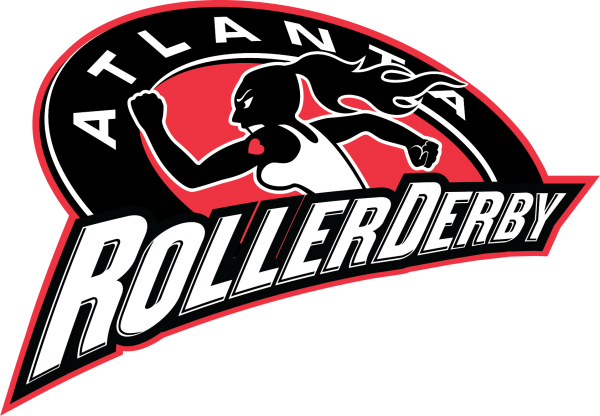Land Acknowledgement
Atlanta Roller Derby hosts practices and games on the stolen territory of the Muscogee (Creek) people. Descendents of mound builders, the Muscogee people were expelled from their ancestral lands, which include the areas now known as Alabama, Georgia, Florida, and South Carolina. Before the United States government stole their homelands, they lived in sophisticated autonomous tribal towns that together formed a multi-part union known as the Muscogee Creek Confederacy. Most Muscogee in the area of present-day Georgia were speakers of Hitchiti, one of multiple Muskogean languages and one of the many Indigenous languages which has perished due to European invasion and genocide. Other cultural practices, like the sharing of all property and making decisions via community consensus, were extirpated in the process of forced assimilation with the economy and culture of European colonists’. Many Indigenous religious practices were outlawed by the U.S. government or restricted due to lack of access to sacred sites. These rights were only restored in 1978.
The Muscogee people were repeatedly forced to defend their land at great loss as British, French, and Spanish factions battled for control of the area. Many Muscogee left their ancestral home lands after signing treaties with the United States in the early 1800s, often without receiving the compensation promised in the treaties. Most relocated to “Indian Territory” in Oklahoma, but tens of thousands who refused to leave were forcibly removed by the U.S. Army following the Indian Removal Act in the Trail of Tears. Although precise numbers are poorly documented, it is estimated that nearly half of Muscogee people lost their lives on the Trail of Tears. Those who survived were met with more disease, starvation, and injustice upon their arrival to “Indian Territory.” Today, the Muscogee people are spread between Alabama, Oklahoma, and other areas in the southeastern U.S.
The lasting effects of colonization and genocide are glaringly apparent in the economic, social, and judicial injustices that Indigenous people suffer at the hands of the U.S. government. Additionally, monuments to colonizers, slavers, and murderers are still prominent in our city and country. Atlanta Roller Derby hosts its games on the eminent thoroughfare Ponce de Leon Ave, a street named for a man who led European expeditions to Turtle Island in pursuit of gold and a mythical fountain of youth, resulting in brutal genocide, enslavement of native peoples, and the spread of disease. These passive celebrations of colonizers are marks of the horrific history that the United States is founded on and a call to action for allies and accomplices.
Atlanta Roller Derby believes it is important to honor the Muscogee people and their history. We are all living and skating on land stolen from the Indigenous peoples of Turtle Island by the United States government through campaigns of coercion and genocide. It is our collective responsibility as beneficiaries of these atrocities to bear witness to the historic and ongoing oppression of Indigenous people. Acknowledgment is only the beginning. We urge everyone to learn about this history, donate your time and money to Indigenous-led organizations, stand in solidarity with land protectors, advocate for missing and murdered Indigenous women, and return the land to its original stewards.
Resources and ways to support:
Some information about the impact of COVID-19 on Indigenous communities:
References:
Thornton, Russell. “Cherokee Population Losses during the Trail of Tears: A New Perspective and a New Estimate.” Ethnohistory 31 (4): 289-300, 1984.
